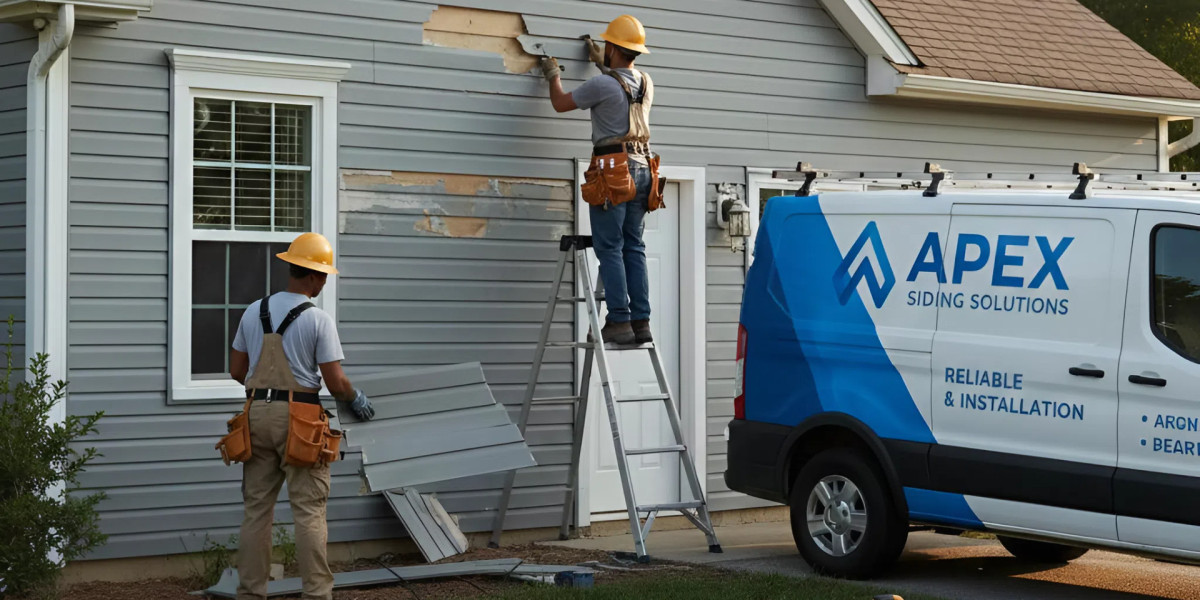Choosing the Right Siding Repair Services in San Francisco: Expert Tips
San Francisco’s iconic architecture ranges from Victorian houses to sleek modern builds, and almost all of them rely on durable, well-maintained siding to protect against the city’s challenging climate. Over time, moisture, salty ocean air, wind, and shifting temperatures can cause siding to wear down—leading to costly structural damage if not addressed early. That’s why choosing the right siding repair service in San Francisco is critical.
Whether you’re a homeowner looking to preserve your property or a landlord aiming to maintain curb appeal and safety, this guide provides expert insights into selecting a reliable siding repair contractor. Below, we cover what to look for in a professional, the questions to ask, red flags to avoid, cost expectations, and how San Francisco’s unique environment affects siding.
Why Siding Repair Matters in San Francisco
San Francisco is notorious for its microclimates—foggy mornings, salty coastal air, sudden temperature changes, and humidity pockets that vary from neighborhood to neighborhood. These conditions can degrade siding materials faster than in many other regions.
Common Issues San Francisco Homes Face
- Salt corrosion and moisture infiltration in coastal neighborhoods like the Sunset and Richmond
- Dry rot resulting from trapped moisture in older wooden siding
- Warping and cracking due to temperature fluctuations in areas like Noe Valley or Twin Peaks
- Wind damage from seasonal gusts impacting homes near the coastline
- Fading and paint peeling on south-facing exteriors
Because of these challenges,choosing a siding repair contractor familiar with San Francisco’s climate is not just a preference—it’s a necessity.
Signs Your Home Needs Siding Repair
Before choosing a contractor, understanding what problems you’re dealing with will help you communicate clearly and get accurate estimates.
1. Visible Damage
Cracks, holes, warping, or loose panels indicate your home’s protective layer has already been compromised.
2. Mold, Mildew, or Fungus
These often signal water infiltration beneath the siding.
3. Rising Energy Bills
Compromised siding can reduce insulation efficiency.
4. Peeling Paint or Interior Water Stains
Moisture may be seeping through degraded siding or flashing.
5. Soft or Rotting Wood
Especially common in older San Francisco homes with original wood siding.
6. Pest Activity
Termites, carpenter ants, and even rodents can exploit damaged siding.
Once you identify these issues, the next step is hiring a contractor who can assess and repair the damage professionally.
Key Qualities to Look for in a Siding Repair Service
Choosing the right company can make the difference between a repair that lasts decades and one that fails within a year. Here’s what to look for.
1. Local Experience With San Francisco Homes
This is arguably the most important factor. Contractors who regularly work in San Francisco understand:
- The city’s weather patterns
- How materials behave in salt-heavy air
- The nuances of Victorian, Edwardian, and mid-century building styles
- Local permitting and building codes
A local or Bay Area-based contractor will naturally be more familiar with regional challenges.
2. Proper Licensing and Insurance
Never hire a contractor who cannot provide:
- A valid California contractor’s license
- Proof of general liability insurance
- Workers’ compensation documentation
These protect you from liability and ensure the contractor has met state standards.
3. Specialization in Siding Repair
Some general contractors offer siding repairs, but specialists often deliver better results. Look for companies that:
- Highlight siding as a core service
- Work with multiple siding materials
- Are certified installers for top brands (e.g., James Hardie, LP SmartSide)
4. Strong Reviews and Reputation
Reputation is everything. Check:
- Google reviews
- Yelp
- Better Business Bureau ratings
- Testimonials on the company’s website
Pay attention to recurring themes like punctuality, quality, communication, and follow-up care.
5. Transparent Pricing and Written Estimates
A trustworthy contractor will:
- Provide a free or low-cost written estimate
- Explain each cost item clearly
- Offer multiple repair options when appropriate
- Never pressure you into unnecessary upgrades
6. Quality Materials and Warranty
The best siding repair services use high-grade, durable materials with manufacturer warranties. They should also offer a workmanship warranty, typically ranging from 1 to 10 years.
7. Good Communication and Responsiveness
If a contractor takes days to reply or avoids answering questions, expect the same during the project. Communication helps ensure your project stays on schedule and meets expectations.
Questions to Ask Before Hiring a Siding Repair Contractor
Asking the right questions separates reputable professionals from unqualified contractors. Here are essential questions:
1. How many years have you worked in San Francisco?
Local experience significantly affects repair quality.
2. What siding materials do you specialize in?
They should be familiar with:
- Wood
- Fiber cement
- Vinyl
- Stucco
- Metal siding
3. Can you provide references from recent projects?
Speaking to past clients gives insight into reliability and workmanship.
4. What is the estimated timeline for the repair?
A clear timeline prevents surprises and delays.
5. Do you handle permits if needed?
Some repairs require city permits, especially on historic homes.
6. What type of warranty do you offer?
Both workmanship and material warranties matter.
7. How do you handle unexpected issues during repairs?
Rot or structural problems often appear during siding removal.
Understanding Siding Materials Common in San Francisco
Choosing the right siding material influences repair longevity. Here are the most common types in the area:
1. Wood Siding
Popular in Victorian and craftsman homes.
Pros: Authentic look, repairable in sections
Cons: Susceptible to rot and termites, high maintenance
2. Fiber Cement (e.g., James Hardie)
A top choice for durability in coastal climates.
Pros: Fire-resistant, rot-resistant, long lifespan
Cons: Higher upfront cost, requires expert installation
3. Vinyl Siding
Less common in SF but used in some newer builds.
Pros: Affordable, low maintenance
Cons: Can crack in cold or warp in heat
4. Stucco
Found in Mediterranean-style homes.
Pros: Good insulation, long-lasting
Cons: Prone to cracking in seismic zones unless properly reinforced
5. Metal Siding (Steel or Aluminum)
Gaining popularity in modern builds.
Pros: Durable, fire-resistant
Cons: Can dent easily, more expensive
A professional contractor should guide you toward the best option for your home’s design, neighborhood, and budget.
Cost Expectations for Siding Repair in San Francisco
While exact pricing varies, here are general cost ranges for siding repair in the city:
Minor Repairs
- Small panel replacements, patching cracks, repainting
$300 – $1,500
Moderate Repairs
- Replacing multiple boards, fixing moisture damage, resealing
$1,500 – $6,000
Major Repairs
- Full wall replacements, structural fixes, extensive rot removal
$6,000 – $20,000+
Factors influencing cost:
- Type of siding
- Height of the home
- Labor difficulty
- Extent of underlying damage
- Permit requirements
Always get multiple quotes before selecting a contractor.
Red Flags to Avoid When Choosing Siding Repair Services
Unfortunately, not all contractors operate ethically. Here are warning signs:
1. Lack of licensing or insurance
Always verify credentials.
2. Extremely low bids
Cheap often means:
- Low-quality materials
- Rushed work
- No warranty
3. High-pressure sales tactics
A good contractor explains options, not pressures decisions.
4. No written contract
Contracts protect both parties.
5. Poor communication or missed appointments
Unreliable communication early on usually predicts project issues.
How to Compare and Choose the Best Contractor
To make an informed decision, follow this process:
1. Gather at least three quotes
Compare:
- Pricing
- Timeline
- Materials






